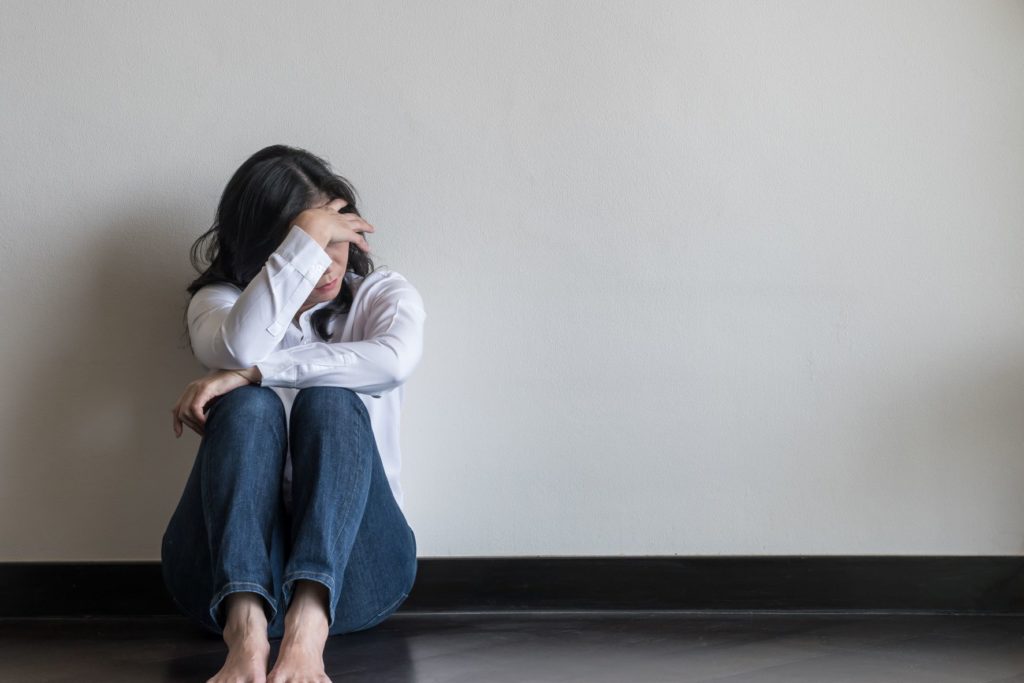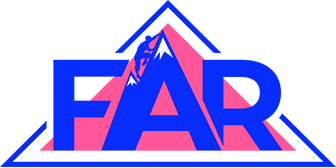Prescription medications are drugs that are designed to help treat illnesses, ailments, mental health disorders, and more. However, although they are meant to be helpful, these medications can become addictive. Individuals who use prescription drugs for an extended period of time may find themselves struggling to maintain a healthy relationship with these drugs. Such is often the case with benzodiazepines. Thankfully, benzo addiction treatment programs can help.
Individuals who struggle with benzodiazepine misuse may not be aware of how their addiction developed. They may feel hopeless, alone in their struggle. But, there is hope. Our benzo abuse treatment program in North Carolina can assist those who are in need. With help from a professional addiction rehabilitation program, individuals can live a life without addiction.
What are
Benzodiazepines?
Benzodiazepines are a class of depressant drugs. Medical professionals often prescribe these sedatives to treat seizures, anxiety, sleep disorders, and panic disorders. In some cases, benzos may even be prescribed to treat alcohol withdrawal.
Types of Benzos
Types of
Benzos
Some common types of benzodiazepines include the following:
- Alprazolam (Niravam, Xanax) – Used to treat anxiety and panic disorders
- Chlordiazepoxide (Librax) – Used to treat anxiety and alcohol withdrawal
- Clobazam (Onfi) – Used to treat seizures
- Clonazepam – Used to treat seizure disorder, panic disorder, and neuralgia (nerve pain)
- Clorazepate (Tranxene T-Tab) – Used to treat anxiety, alcohol withdrawal, partial seizures
- Diazepam (Valium) – Used to treat anxiety, muscle spasm, alcohol withdrawal, and seizure disorders
- Estazolam (ProSom) – Used to treat insomnia
- Flurazepam (Dalmane) – Used to treat insomnia
- Lorazepam (Ativan) – Used to treat anxiety, insomnia, and seizures
- Midazolam (Versed) – Used to treat seizures
- Oxazepam (Serax) – anxiety, alcohol withdrawal
- Temazepam (Restoril) – Used to treat insomnia
- Triazolam (Halcion) – Used to treat insomnia
Many of these benzodiazepines are also used for sedation purposes. Versed is a preoperative drug; Ativan or Valium may be used for sedation.
While benzodiazepines are typically safe to use according to medical directions, these drugs can be quite addictive. Individuals can grow dependent on benzos after using them for a long time. When this dependence occurs, it is important to seek the help of a benzo abuse treatment program. Through professional treatment services, individuals can overcome prescription drug abuse.
Effects of
Benzodiazepine Addiction
 The effects of benzodiazepine addiction can range from mild to severe. Some of the effects may occur fairly quickly, perhaps upon initial use as side effects. Other effects may begin to display themselves after a person has been regularly using benzodiazepines for a short period of time. The long-term effects of benzo abuse may not occur for quite a while after a person begins abusing benzos.
The effects of benzodiazepine addiction can range from mild to severe. Some of the effects may occur fairly quickly, perhaps upon initial use as side effects. Other effects may begin to display themselves after a person has been regularly using benzodiazepines for a short period of time. The long-term effects of benzo abuse may not occur for quite a while after a person begins abusing benzos.
In any case, however, individuals need to seek help as soon as possible. Not only is professional treatment helpful in ending benzodiazepine addiction, but it can also provide a safe way to address the withdrawal symptoms that can occur.
An addiction treatment professional is aware of the short-term and long-term effects of benzo abuse. As such, a benzo addiction treatment program will be able to help people in any stage of addiction. So, whether a person is suffering from the short-term effects or the long-term impact of benzo abuse, treatment can help.
Some of the short-term effects of benzodiazepine abuse may include the following symptoms:
- Anxiety
- Headaches
- Blurred vision
- Cognitive confusion
- Forgetfulness
- Irritability
- Fatigue
These harmful side effects of benzo use can appear after just a short time of benzo usage. They can occur shortly after the desired effects of benzos subside.
Some of the long-term effects of benzodiazepine abuse may include the following:
- Amnesia
- Drowsiness
- Impaired coordination
- Memory and concentration problems
- Cognitive impairment and deficits
- Stiffness in the muscles
- Sexual dysfunction
- Dementia
After abusing benzodiazepines for a long period of time, individuals may experience some of these severe symptoms. As such, both medical treatment and benzo addiction treatment will likely be necessary.
Signs of Benzodiazepine Addiction
If you suspect that someone you know is struggling with benzodiazepine abuse, it is essential to know the signs of this type of addiction. A person who is suffering from benzo misuse or addiction may:
- Exhibit poor judgment.
- Begin to have blurred vision.
- Often feel weak and/or drowsy.
- Borrow other people’s prescriptions.
- Forge prescriptions for benzodiazepines.
- Steal prescriptions or benzo medications from loved ones.
- “Doctor shop”. This means the individual may go from one doctor to another to get as many benzo prescriptions as possible.
- Purchase benzos from people who are illegally selling them.
- Regularly use more pills than the recommended amount.
- Use higher doses due to increased tolerance.
- Experience mood swings or changes.
- Exhibit cravings for benzos.
Those who are suffering from substance abuse may also begin to show signs of decreased performance at school or work. They may begin to lose interest in things they once enjoyed. Benzo abuse may also become an expensive habit, which can lead people to have financial problems. Additionally, when not using benzodiazepines, individuals may experience withdrawal symptoms. This can be a clear indication of benzo misuse, abuse, or addiction.
Addiction Treatment Programs at
Focused Addiction Recovery
 At Focused Addiction Recovery, we offer various treatment programs. We understand that each of our clients is unique and has specific needs when it comes to addiction recovery. As such, we provide an individualized approach to rehabilitation by offering different programs. Those in need of a benzo abuse treatment program can benefit from the services we offer, including:
At Focused Addiction Recovery, we offer various treatment programs. We understand that each of our clients is unique and has specific needs when it comes to addiction recovery. As such, we provide an individualized approach to rehabilitation by offering different programs. Those in need of a benzo abuse treatment program can benefit from the services we offer, including:
- Drug and alcohol detox
- Partial hospitalization program (PHP)
- Intensive outpatient program (IOP)
- Outpatient program (OP)
- Sober living
The drug and alcohol detoxification process cleanses the body of toxins and helps people safely end substance use. Typically, people experience withdrawal symptoms when they stop alcohol or drug use. These symptoms can range from mild to quite severe, depending on the substance a person has been using and how long they have been using it. But, the detox process provides medical supervision, making the withdrawal process safer and lowering the risk of initial relapse.
Our outpatient addiction treatment program allows individuals to receive addiction treatment while continuing to live at home. It is often the best option for those who have already completed residential treatment. Outpatient rehab is also beneficial for those who are not suffering from severe addictions.
Our partial hospitalization and intensive outpatient programs are types of outpatient treatment. They can serve as transitional programs after residential rehabilitation. These programs can assist individuals as they work through the challenges of recovery and prepare to build a life beyond addiction.
After completing treatment, individuals can enter our sober living program. While in a sober living program, recovering individuals can live in a drug- and alcohol-free environment along with others in recovery.
With help from our team of medical professionals, you can find freedom from addiction today. Our addiction treatment programs can assist you on your journey to a life that is free from substance dependence.
Therapy for Benzodiazepine Addiction
At Focused Addiction Recovery, we offer comprehensive treatment for substance abuse. We believe effective rehabilitation does not only treat one’s physical addiction. Treatment should also address the emotional and mental health of those in recovery. This is why we also provide therapeutic services as a part of our addiction treatment program. At our treatment center, individuals can benefit from the following types of addiction therapy:
- Individual therapy
- Group therapy
- Family therapy
- Cognitive-behavioral therapy (CBT)
- Dialectical behavioral therapy (DBT)
Each of these types of therapy can address the specific and unique needs of our patients. Individual therapy takes place in a one-on-one setting, providing a safe space for people to discuss their personal stories. Group therapy sessions take place in a group setting, allowing people to meet others who are on the road to recovery.
Family therapy offers an environment that is conducive to the healing of the entire family unit. CBT and DBT for substance abuse address harmful thinking patterns and encourages mindfulness.

